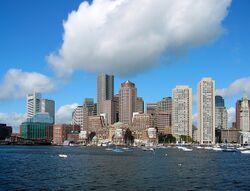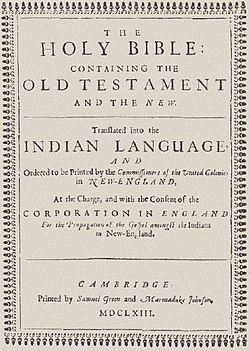
Massachusetts, often referred to as the Bay State, holds significant importance in American history, culture, and innovation. The state was named after the Massachusett, an Algonquin Indian tribe, that inhabited the area of present-day Greater Boston.[1] The name “Massachusetts” is derived from two words in the language: “massa” (meaning “great”) and “wachusett” (meaning “mountain place”). These words combine to signify “great mountain place.”[2] As of 2022, Massachusetts had a population of 6,981,974. Over the last two decades, the population has seen fluctuations, reaching its peak of 6,995,729 in 2020 and showing a trend of decline since then.[3]
History of Massachusetts
Massachusetts was the site of one of the earliest European colonies in what is now the United States. The Pilgrims established the first permanent settlement in 1620. A significant Puritan migration began in 1630, leading to the establishment of the Massachusetts Bay Colony and the subsequent settlement of other New England colonies.

America’s first public school was the Boston Latin School founded in 1635. Harvard University was founded in 1636 as the first university in Colonial America.[4]
Massachusetts played a central role in the American Revolution. Important events in the was included, the Boston Tea Party in 1773, the first battle between the colonists and the British at Concord in 1775, and the Battle of Bunker Hill also in 1775.
The 1780 Constitution of the Commonwealth of Massachusetts, drafted by John Adams, is the world's oldest functioning written constitution. It served as a model for the United States Constitution, which was written in 1787 and became effective in 1789.[5] In 1788 Massachusetts achieved statehood and became the 6th state to join the United States.
The state became a center for manufacturing and industry during the 19th century, particularly in textiles and shoes. Manufacturing became more concentrated in Massachusetts. Industrial development benefitted from plentiful waterpower, skilled labor from farmers trained in handcraft, and multiple capital investments.[6]
Demographics of Massachusetts
According to the 2020 National Federal Census, Massachusetts had the following demographic profile:
Population (up 7.4% to 331.4 million).
- White alone 61.6%;
- Black alone 12.4%;
- Hispanic 18.7%;
- Asian alone 6%;
- American Indian and Alaska Native alone 1.1%;
- Native Hawaiian and Other Pacific Islander alone 0.2%;
- Some other race alone 8.4%;
- Two or More Races 10.2%
The diversity index in Massachusetts has risen to 61.1%, up from 54.9%.
Most common surnames in Massachusetts
According to the Forbears.io website,[7] the ten most common surnames in Massachusetts are:
| Surname | Incidence | Frequency |
|---|---|---|
| Sullivan | 24,964 | 1:297 |
| Johnson | 23,404 | 1:317 |
| Brown | 22,700 | 1:327 |
| Murphy | 20,129 | 1:368 |
| Williams | 16,876 | 1:439 |
| Anderson | 14,293 | 1:519 |
| White | 14,195 | 1:522 |
| Martin | 13,583 | 1:546 |
| Davis | 13,548 | 1:547 |
| McCarthy | 13,217 | 1:561 |
The lists of the most common surnames in Massachusetts vary from website to website.
Researching family history in Massachusetts
Massachusetts has a long history of important and valuable genealogical records. The early colonists kept Town Records that began with the establishment of each of the communities and many records date back to the 1600s. The Massachusetts Archives has records from 1629 to the present. These records include Passenger Lists, Massachusetts State Censuses, Military Records, Plymouth Colony Records, Court Records, and many others. Massachusetts is the home to the New England Historic Genealogical Society (NEHGS), the oldest such organization in the United States founded in 1845. The NEHGS has an extensive website and a major library collection in Boston. Another major collection of records is available from the General Society of Mayflower Descendants, commonly referred to as the Mayflower Society. In addition to an extensive library in Plymouth, the society has a major collection of published histories.
Massachusetts also has a United States National Archives branch in Waltham, Boston. The Boston Public Library is also a major genealogical research repository.
Massachusetts county list
| Barstable | Berkshire | Bristol | Dukes |
| Essex | Franklin | Hampden | Hampshire |
| Middlesex | Nantucket | Norfolk | Plymouth |
| Suffolk | Worcester |
Explore more about Massachusetts
MyHeritage has 537 collections containing a total number of 9,444,605 records from Massachusetts, including Massachusetts, Marriages, 1841-1915, Massachusetts Newspapers, 1704-1974, United States, Massachusetts, Birth Index, 1840-1910 and the United States, Massachusetts, Death Index, 1840-1910.
There are many other valuable collections available at the Massachusetts - Collection Catalog.
References
- ↑ Concise Facts. Secretary of the Commonwealth of Massachusetts
- ↑ Fermino, Jessie Little Doe (2000). Introduction to Wampanoag Grammar (Thesis). Massachusetts Institute of Technology
- ↑ Massachusetts Population by Year - 2023 Statistics, Facts & Trends. Neilsberg. Accessed April 4, 2024
- ↑ Historical Timeline. Bridgewater State University
- ↑ Wiener, Roberta. Massachusetts : The History of Massachusetts Colony, 1620-1776. Chicago: Raintree, 2005.
- ↑ Historical Sketch of Massachusetts
- ↑ Most Common Surnames in Massachusetts, With Meanings